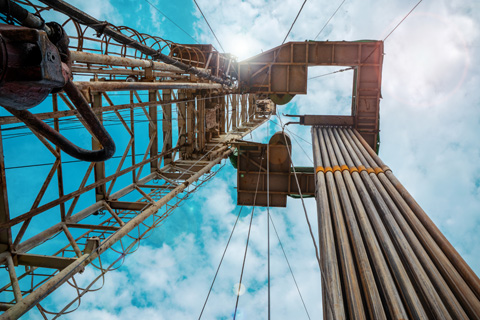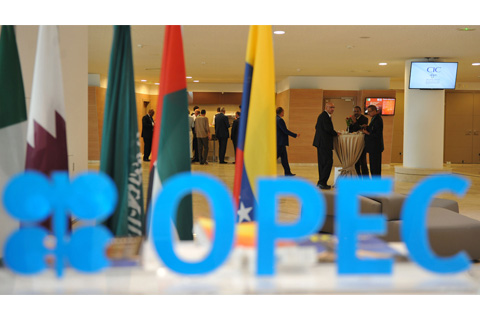
ALL EPISODES
185 | Transformer Transition | Hitachi Energy
184 | Demand Dynamics | Energy Exemplar
183 | Power Pivot | Hyliion
182 | Greener GPUs | Nvidia
181 | Carbon Clarity | Locus Bio-Energy
180 | ISO Insights | PowerGen ’24 (Live)
179 | Cloud Confidence | ACCURE Battery Intelligence
178 | Lighter Lift | Upwing Energy
177 | Perovskite Performance | Caelux
176 | Solar Sentiment | Transect
175 | Substantial Salton | Berkeley Lab
174 | Gasified Garbage | Reformed Energy
173 | Mini Microgrid | Idaho National Laboratory
172 | Holistic HVAC | Trane
171 | Liquid Lead | newcleo
170 | Triple Transmission | WSP
169 | European Exploration | MCF Energy
168 | Crypto Complement | Digital Power Optimization
167 | Breaker Breakthrough | Atom Power
166 | Algae Alternatives | Bioenergy Technologies Office (DOE)
165 | Clean Colors | UNC CleanTech ’23 (Live)
164 | Real-time Results | Copper Labs
163 | Battery Business | PowerGen ’23 (Live)
162 | Hydrogen Hubs | HFTO
161 | CadTel Cells | Toledo Solar
160 | Local Lithium | Investissement Québec
159 | Simplified SMRs | Last Energy
158 | Fusion First | Lawrence Livermore Nat’l Lab
157 | LNG Logistics | Glenfarne Energy Transition
156 | Reliably Rechargeable | Zinc Battery Initiative
155 | Fast Fission | Oklo
154 | Efficient Engine | LiquidPiston
153 | Mining Minerals | Gold Express Mines
152 | Fine Flotilla | NoviOcean
151 | Carbon Complement | Energy Dome
150 | Durable Durations | PowerGen ’22 (Live)
149 | Limitless Lithium | Electrovaya
148 | Brick Batteries | Rondo Energy
147 | Choice Champions | Joule Assets
146 | Refiners’ Response | AFPM
145 | Coal Comeback | Euracoal
144 | Driving Design | Dassault Systemes
143 | Stateside Steel | Origami Solar
142 | Canadian Carbon | Delta CleanTech
141 | Propane’s Promise | Propane Education & Research Council
140 | Durable Diamonds | NDB
139 | Colossal Chemistry | FuelCell Energy
138 | Louisiana Leadership | Cleco Power
137 | Customer Control | OhmConnect Energy
136 | Smart Sinks | Soluna Computing
135 | Angle Advantage | Array Technologies
134 | Innovating Isotopes | Curio
133 | Recycled Renewables | Veolia
132 | Burial Benefits | PDI2
131 | Reliable Response | CPower
130 | Bountiful Batteries | PowerGen+ Series (Live)
129 | See-through Solar | Ubiquitous Energy
128 | Efficient Extraction | Nth Cycle
127 | Legislative Lessons | NAYGN Conference (Live)
126 | Blockchain Buildings | SWTCH
125 | Institutional Incubator | Wells Fargo
124 | Hidden Hydropower | NuSTREEM
123 | Wonderous Wallcrawlers | Gecko Robotics
122 | Power Partnerships | PowerGen+ Series (Live)
121 | Spikeless Solution | Eos Energy Enterprises
120 | LiDAR Lines | LineVision
119 | Sensational Scrubbers | Dry Scrubber Users Association
118 | Dynamic Duo | Dominion Energy
117 | Generous Geothermal | Geothermal Technologies Office (DOE)
116 | Coal Considerations | PowerGen+ Series (Live)
115 | Powered Pumpers | Evolution Well Services
114 | Thermal Thinking | Viking Cold Solutions
113 | Multitasking Meters | ConnectDER
112 | Beaming Benefits | PowerLight Technologies
111 | Star Storage | EnerVenue
110 | Ageless Assets | PowerGen+ Series (Live)
109 | Healthy Harmonics | Satic USA
108 | Molecular Milestone | Q Hydrogen
107 | Directional Drilling | Gyrodata
106 | Lossless Lithium | EnergyX
105 | Dynamic Districts | Vicinity Energy
104 | Residential Reliability | Schneider Electric
103 | Home Heating | Dandelion Energy
102 | Changing Charging | Beam Global
101 | Storage Solutions | PowerGen+ Series (Live)
100 | Fusion Forum | NAYGN Conference (Live)
99 | Fissile First | NuScale Power (Live)
98 | Micro Management | Hitachi ABB Power Grids
97 | Plastic Potential | Brightmark
96 | Coal Commodities | X-MAT
95 | Intelligence Island | DARPA
94 | California Conundrum | PTS Advance
93 | Trending TRISO | X-energy
92 | Experiment Experts | National Carbon Capture Center
91 | Radiant Reliability | Solcast
90 | Fossil’s Future | Department of Energy
89 | Vigorous Vanadium | Invinity Energy Systems
88 | Plentiful Projects | Invenergy
87 | Fuel FAQs | American Petroleum Institute
86 | COVID Communications | Con Edison
85 | Pandemic Preparedness | IEEE
84 | Energy Equity | RadiantREIT
83 | Future Furnaces | FORGE (DOE)
82 | Fuel Flexibility | GE
81 | Useful Utilization | NETL
80 | Great Grid | DistribuTech (LIVE)
79 | Subsurface Solution | NETL
78 | Stackable Storage | Energy Vault
77 | Industry Insights | Innogy Consulting
76 | Protected Plants | Total Tactical Defence Protection Services, Inc.
75 | Holistic Hybrid | Wärtsilä
74 | Suspending Structures | Mosaic Materials
73 | Power Platform | Tractebel Overdick GmbH
72 | Clean Community | Arcadia Power
71 | Retail Renewables | Green Mountain Energy
70 | Gilded-Age Goliaths | The Current War
69 | Solar Sustainability | 10Power
68 | Progressive Projects | Community Energy
67 | Super Semiconductors | GaN Systems
66 | Rapid Refueling | Plug Power
65 | Power Policy | NAYGN Conference (Live)
64 | Fewer Flares | Bakken Midstream
63 | Fission's Future | Office of Nuclear Energy (DOE)
62 | Renewable Roadmap | Geothermal Technologies Office (DOE)
61 | Ambidextrous Airship | Chaac Technologies
60 | Biggest Battery | Dominion Energy
59 | Milwaukee Milestone | Franklin Energy
58 | Better Bituminous | Clean Coal Technologies, Inc.
57 | Subterranean Storage | Apex CAES
56 | Alkaline Advantage | Naval Research Laboratory
55 | CO2 Cycle | Net Power
54 | Fleet Fuel | Naval Research Laboratory
53 | Dixie Diesel | Neowaste
52 | Benthic Batteries | Naval Research Laboratory
51 | Meltdown Melodrama | A Bright Future
50 | Space Solar | Naval Research Laboratory
49 | Storage Supporters | Energy Storage Association
48 | Supermajor Subscription | Shell
47 | Biological Breakthrough | University of Nebraska
46 | Human Hydropower | NLine
45 | Fusion Founder | TAE Technologies
44 | Global Gas | Freeport LNG
43 | Fantastic Flywheels | Amber Kinetics
42 | Online Offsets | Swytch.io
41 | Lightning Larceny | Steve LeRoy
40 | Best Brands | LarsEn Energy Branding
39 | Cinematic Cells | SimpliPhi Power
38 | Warm Wattage | Climeon
37 | Hydrocarbon Heat | University of North Dakota
36 | Kinetic Kilowatts | Constructis
35 | Pipeline Performance | Texas Pipeline Association
34 | Solar Suits | SEIA
33 | Fissile Fuel | Lightbridge Corp.
32 | Wireless Wattage | Solace Power
31 | Successful Sequestration | NRG Energy
30 | Frozen Fuel | Ice Energy
29 | Car Capacity | Nuvve Corp.
28 | Burundian BTUs | Terrastar Energy
27 | Nifty Negawatts | Energy Bees
26 | Oilfield Opportunity | Scott Energy Technologies
25 | Mighty Mirrors | ATA Insights
24 | Tiny Turbines | Capstone Turbine Corporation
23 | Buckeye Buckshot | Ohio State University
22 | Drone Dynamo | Windlift
21 | Historic Hydroelectric | Cube Hydro
20 | Futuristic Fusion | Fusion Power Associates
19 | Hydraulic Hydrocarbons | Select Energy Services
18 | Witty Wind | Barber Wind Turbines
17 | California Current | CalWave
16 | Next-Gen Nuclear | SmrREC
15 | Engaging Environmentalism | Clean Air Task Force
14 | Famous Frackers | The Frackers
13 | Excellent EVs | Plug-in NC
12 | Stable Storage | Alevo
11 | Subterranean Steam | Chabourne
10 | TXU @ 10 Series
9 | Perry Policy | Jeff Merrifield
8 | Carbon Currency | GT Environmental Finance
7 | Marvelous Marcellus | IOGA
6 | Coal Country | West Virginia Coal Association
5 | Generous Gasification | Proton Power
4 | Farm Fuel | Genera Energy
3 | Clean Conservatism | ClearPath
2 | Cool Fuel Cells | FCET
1 | Reliable Renewables | Duke Energy Renewable Control Center

















